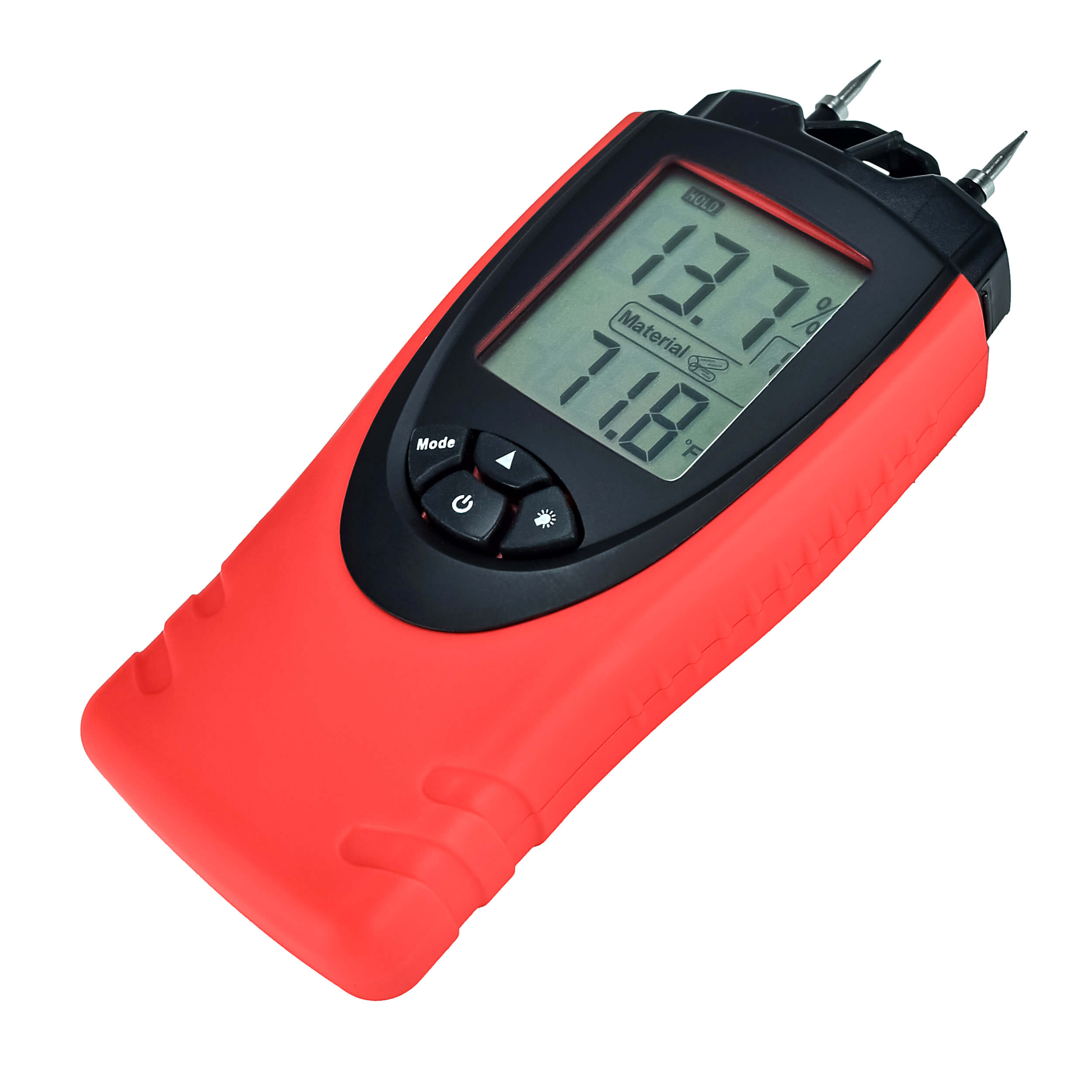Understanding the Various Types of Moisture Meters and Their Applications
Understanding the Various Types of Moisture Meters and Their Applications
Blog Article
The Ultimate Overview to Moisture Meters: A Comprehensive Overview and Just How They Can Save You Cash
In the realm of structure upkeep, construction, and various sectors, the value of properly determining moisture degrees can not be overemphasized. Dampness meters act as indispensable tools in finding and checking moisture content in products, aiding in preventing costly problems and ensuring the top quality of products. Understanding the nuances of different sorts of wetness meters, their applications, and the potential cost-saving advantages they provide can be a game-changer for companies and professionals alike. Finding how these devices can not only simplify procedures however additionally add to economic savings is a journey worth getting started on.
Kinds of Dampness Meters
Different kinds of wetness meters are available for various applications in various markets. One usual type is the pin-type dampness meter, which gauges the electrical resistance in between two pins put right into a material. This kind is ideal for wood, drywall, and other building products. Pinless wetness meters, on the various other hand, usage electromagnetic sensor plates to scan a bigger location without creating damage to the product's surface area. Moisture Meter. These meters are ideal for swiftly assessing dampness levels in big locations such as floors and wall surfaces.

Furthermore, there are also specialty dampness meters developed for particular materials like hay, grain, or dirt. These meters provide precise moisture readings customized to the unique residential properties of the product being examined. Infrared wetness meters determine the thermal properties of a material to determine its moisture web content non-invasively, making them useful for applications where pin or pinless meters may not be appropriate. Comprehending the various sorts of wetness meters offered can aid sectors choose one of the most appropriate device for their certain moisture dimension requirements.

Advantages of Using Dampness Meters
Dampness meters use vital benefits in precisely evaluating and keeping track of moisture degrees in varied products and settings (Moisture Meter). One of the key benefits of making use of dampness meters is the avoidance of potential damage created by excess dampness. By detecting and dealing with high wetness levels beforehand, dampness meters help to stop mold development, rot, and architectural damages in structures, conserving both money and time on repair work. Furthermore, moisture meters help in making certain the high quality of products during building and construction or production processes. By properly measuring dampness material, these tools help keep the stability of timber, drywall, concrete, and other products, minimizing the danger of problems or failures.
In addition, making use of moisture meters can bring about enhanced power performance. By recognizing areas with high moisture levels, such as leakages or inadequate insulation, changes can be made to boost power preservation and lower utility costs. In farming setups, moisture meters play a crucial function in maximizing plant yields by enabling farmers to keep an eye on soil dampness levels and make notified irrigation decisions. Overall, the benefits of utilizing moisture meters cover throughout numerous sectors, offering cost-effective remedies and advertising much better top quality control practices.
How to Select the Right Wetness Meter
When selecting a moisture meter, it's crucial to ensure that the meter is ideal for the specific material you will certainly be testing. Various materials have varying electrical properties that can influence moisture analyses, so picking a meter designed for your material is essential for exact outcomes. By thoroughly assessing these variables, you can pick a dampness meter that satisfies your needs find out here and gives exact moisture measurements for your projects.
Correct Methods for Moisture Meter Use

Cost Financial Savings Through Moisture Meter Applications
How can the tactical application of dampness meters lead to significant price savings across various sectors? In the agriculture market, dampness meters help in identifying the optimum time for harvesting plants, avoiding over-drying or excess wetness that can influence the last item's quality.
Similarly, in building and construction, moisture meters assist protect against pricey problems by discovering moisture degrees in building materials, such as wood or concrete, which can cause structural problems otherwise addressed promptly. By recognizing problem locations at an early stage, service providers can take corrective measures to avoid substantial repairs or replacements, inevitably saving money and time.
Moreover, in the food handling market, wetness meters are necessary for monitoring item high quality and guaranteeing conformity with safety and security policies. By properly determining dampness material in foodstuff, suppliers can prevent wasting, maintain quality, and reduce waste, resulting in considerable cost financial savings. Overall, the calculated application of wetness meters is a valuable investment that can bring about substantial cost decreases and enhanced efficiency throughout numerous sectors.
Verdict
In final thought, wetness meters are beneficial devices for gauging and spotting moisture levels in various materials. By using the appropriate moisture meter and complying with correct strategies, Click This Link customers can properly prevent pricey problems created by excess moisture.
Wetness meters offer as vital tools in discovering and monitoring moisture content in materials, aiding in stopping pricey problems and guaranteeing the top quality of products. Infrared wetness meters click here for more info gauge the thermal residential properties of a product to establish its dampness content non-invasively, making them helpful for applications where pin or pinless meters might not be ideal.Dampness meters use indispensable benefits in precisely examining and keeping an eye on wetness degrees in diverse materials and environments. In farming settings, moisture meters play an important role in optimizing plant yields by enabling farmers to check dirt wetness levels and make informed watering decisions.In conclusion, moisture meters are beneficial devices for discovering and measuring wetness degrees in various materials.
Report this page